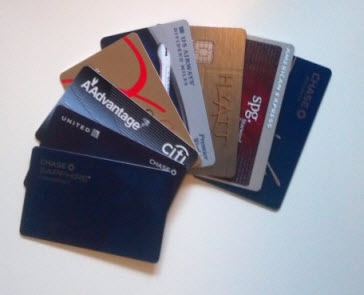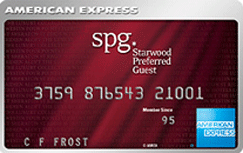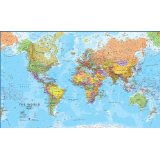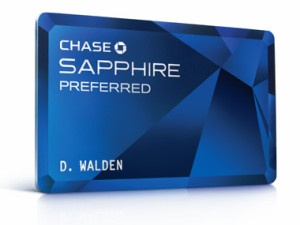Picking Out Your First Points or Miles Earning Credit Card

I’m always excited when friends ask me about getting their first card to help fund their travel, because it means they’ll reach their goals a lot sooner. If you’re also considering whether to get a points or miles earning credit card and which one might be right, here are the questions I walk them through.
1. Should you have a credit card?
If you tend to carry a balance, then the first question should be whether getting another card is really the best choice. If it is, then your primary concern should be interest rates, fees, and whether there is a good balance transfer option. If you rarely carry a balance, then ask yourself the questions below:
2. What is your biggest constraint to traveling as much as you’d like to? Expensive flights, affordable accommodations, not knowing where you want to go, or having the funds in general?
- Flights — if you have plenty of places to stay or already have hotel points, but choke on the cost of an international or cross-country flight then an airline miles earning credit card is a good choice, especially if you plan to use the miles for expensive tickets. Note: if you plan to use your miles primarily for short-haul domestic redemptions, you’d be better off just going with a cash back card. Using your cashback to buy the $300 flight for the times you want rather then spending 25,000 miles (=$250 cashback) and having little flexibility.
 Hotels — if you’re good at finding flight deals to the destinations you want, but don’t have the extra cash to pay for your hotel nights, a hotel credit card is a good choice. Particularly the Starwood Preferred Guest card as they have numerous properties and typically a good redemption rate, such as 7,000 points for a hotel going for $150+.
Hotels — if you’re good at finding flight deals to the destinations you want, but don’t have the extra cash to pay for your hotel nights, a hotel credit card is a good choice. Particularly the Starwood Preferred Guest card as they have numerous properties and typically a good redemption rate, such as 7,000 points for a hotel going for $150+.- Don’t Know — if you’re not sure where you want to go then flexibility is going to be the most useful. Picking a card with general points accumulations that offers transfers into multiple programs might be your best bet. I’m not referring to hotel/airline credit cards that allow you to transfer your points into other programs at typically a poor exchange rate.You’ll also note I said transfers, not purchases. The problem with cards like the Capital One Venture card is that the most redemption value you’ll ever get is 2x what you would pay in cash, and that’s only if there’s availability. Cashback is your best bet at that point.
- Funding — if lack of cash is your biggest constraint, then getting a really good cash back card and saving that money in a general travel fund is your best and most flexible option. For instance, the Fidelity Rewards AMEX offers 2% cashback on all purchases.
3. What are your top destinations and who’s there?
 Once you’ve decided if a hotel, airline, or general membership points card is your best first foray, think about where you would want to travel. Is it London? Is it Easter Island? Figure out your top destinations and do some quick research on what airlines fly there and what hotel chains would be options. You’d hate to get a Delta credit card just to discover it’s extremely hard to use those points for European award tickets or get a Hyatt credit card only to discover Easter Island doesn’t have any chain hotels.
Once you’ve decided if a hotel, airline, or general membership points card is your best first foray, think about where you would want to travel. Is it London? Is it Easter Island? Figure out your top destinations and do some quick research on what airlines fly there and what hotel chains would be options. You’d hate to get a Delta credit card just to discover it’s extremely hard to use those points for European award tickets or get a Hyatt credit card only to discover Easter Island doesn’t have any chain hotels.
This question is interchangeable in priority with #2. If you know, for instance, that you want to go to Greece more than anywhere else, this question should be answered first. Then do a little research on what would be the most expensive portion of the trip and where having points or miles would help you most.
4. What expenses are you most likely to use the card for?

This is often a good question to use as a tie breaker, particularly among general membership points cards. Various cards offer extra points for particular categories of purchases. The Chase Sapphire card offers 2x points on travel and dining expenses. The AMEX Premier Rewards card gives double points for grocery store spend and gas.
5. How many are you comfortable having?
As long as you’re not planning on getting a mortgage (or anything where a credit check really matters), you can apply for 3-4 credit cards at once. So if you can’t decide between several of your options, or there’s great sign up bonuses, consider getting several. Just make sure you can hit your minimum spend requirements for all of them.
6. What is your time frame for getting a credit card?
If you’re not in a hurry to get a card, it might be worth waiting for a better sign up bonus on your card of choice. A quick google search for “<insert card name> sign up bonus” can give you a sense of what some of the better options have been. On the other hand, if you have a big purchase coming up, better to capitalize on that and start building your travel points quickly.
A few other general tips:
- Airline credit cards great if you fly more than a few times a year on one airline and value priority boarding and free checked bags
- Chase Ultimate Rewards cards offer you alot of airline and hotel options across alliances — United, Virgin Atlantic, British Airways, Southwest, Hyatt, IHG, etc.
- Hotel credit cards often come with status and free nights, so if you have upcoming stays in the next 12 months, it might be a good jump start to affording your ideal destination.
Note: Since there are no links in the post, we do not receive any referral credit for you reading it. But if you liked the post you should still feel free to +1 it or click on the ads in the sidebar to show support!
—————–
What did you think of this post? Give us a +1 below or leave a comment!
And don’t miss out on any of our adventures and tips. Get instant updates via e-mail or RSS Feed and follow us on twitter and Facebook.
Heels First’s Travel Advice–Sophisticated Travel, Uncomplicated Advice. The travels and tribulations of two frequent flyers jumping into the world of travel, sharing their travel advice. Join Keri and Jeanne as they tackle mileage runs, elite status, and of course–the perfect travel accessories.
